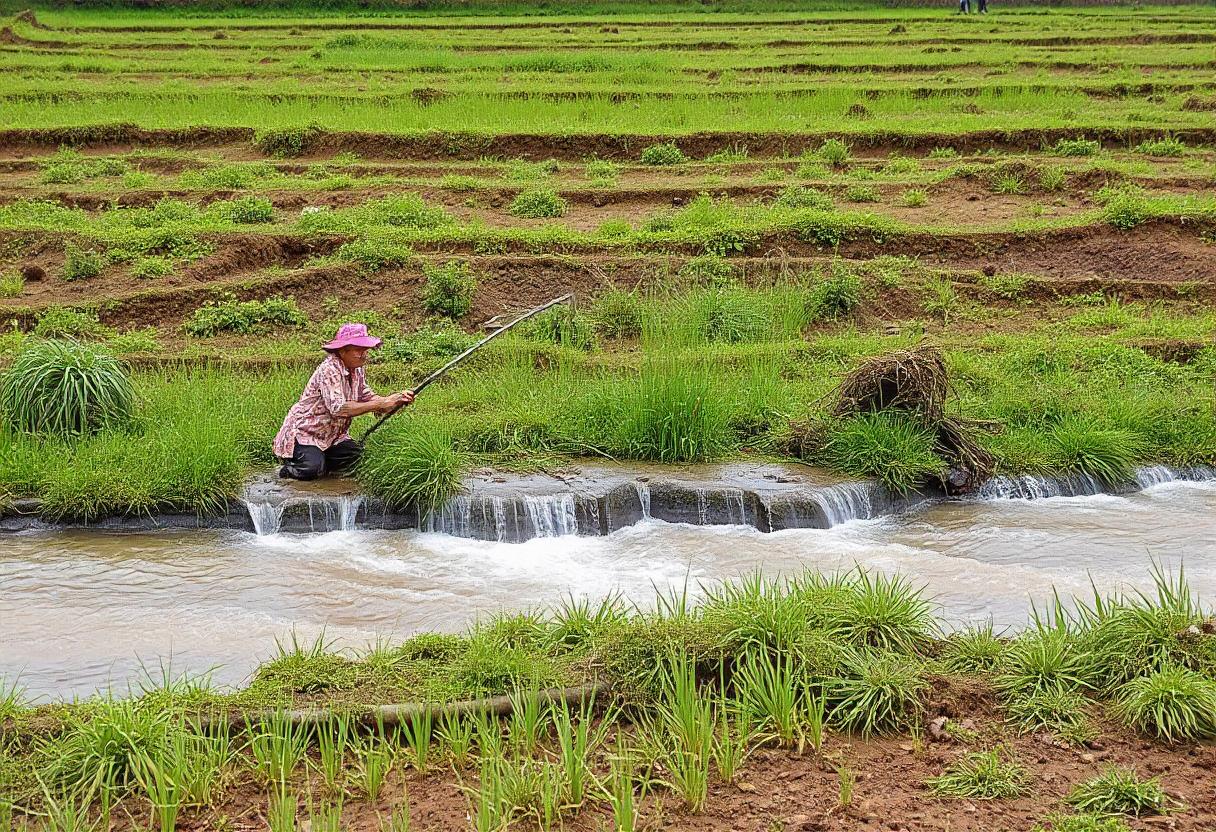
Agriculture runoff refers to the flow of water from agricultural fields that carries with it a range of substances, including soil, nutrients, pesticides, and other chemicals. This runoff typically occurs after rainfall or irrigation when excess water from fields flows into nearby streams, rivers, or other water bodies.
Causes of Agriculture Runoff
Several factors contribute to agriculture runoff. These include:
- Excessive Irrigation: When crops receive more water than they can absorb, the surplus water can carry away soil and nutrients.
- Heavy Rainfall: Intense rain can quickly saturate soil, leading to runoff that can erode fields and wash away applied chemicals.
- Soil Erosion: Fields with inadequate ground cover or poor soil management practices are more susceptible to erosion and subsequent runoff.
- Improper Fertilizer Use: Over-application or improper timing of fertilizer use can lead to excess nutrients being washed away with runoff.
Environmental Impact
Agriculture runoff can have significant environmental impacts:
- Water Pollution: Runoff can carry harmful substances into water bodies, leading to contamination of drinking water and harming aquatic ecosystems.
- Nutrient Pollution: Excess nutrients, such as nitrogen and phosphorus, can cause eutrophication, leading to algal blooms that deplete oxygen in water and affect aquatic life.
- Soil Degradation: Runoff can erode topsoil, which reduces soil fertility and affects crop yields. It can also lead to sedimentation in waterways, affecting fish habitats.
Managing Agriculture Runoff
Effective management practices are essential to mitigate the effects of agriculture runoff:
- Buffer Strips: Planting vegetation along water bodies can help filter runoff and reduce soil erosion.
- Cover Crops: Using cover crops can improve soil health and reduce erosion by stabilizing the soil and absorbing excess nutrients.
- Conservation Tillage: Reducing tillage can help maintain soil structure and reduce runoff by minimizing soil disturbance.
- Proper Fertilization: Implementing nutrient management plans can ensure that fertilizers are applied in the right amounts and at the appropriate times to minimize runoff.
Policy and Regulation
Governments and regulatory bodies often implement policies to address agriculture runoff:
- Regulations: Laws and regulations may require farmers to adopt best management practices and limit the use of certain chemicals.
- Incentives: Financial incentives and subsidies may be offered to encourage the adoption of environmentally friendly practices.
- Education and Training: Providing farmers with education and resources on runoff management can help improve practices and reduce environmental impacts.